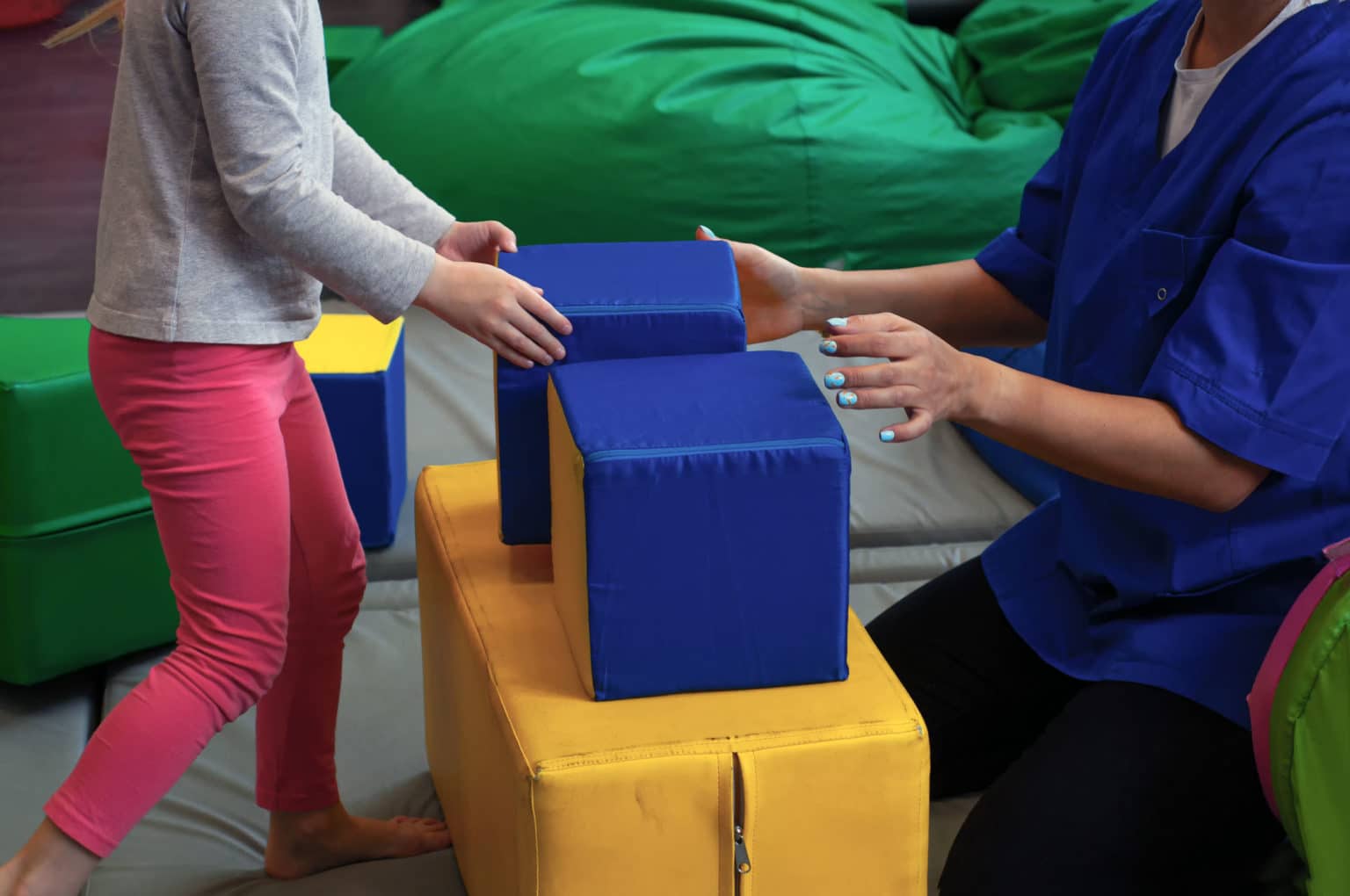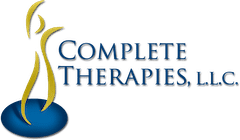Complete Therapies offers Recreational Therapy to children and adults that are affected by Cerebral Palsy, Autism Spectrum Disorder, Traumatic Brain Injury, Elder Care Needs, and other special needs. Recreational Therapists work with individuals to improve and restore the loss of motor, social, and cognitive functioning, while promoting individuals to build confidence, develop healthy coping skills, and implement skills that are learned in treatment into their daily lives. Therapy service areas vary widely and are based upon the individual’s interests. Some examples of therapy services include creative arts such as dance and music; partaking in sports, outdoor activities, and leisure education such as reading.

What is Recreational Therapy?

Recreational Therapy utilizes the delivery of treatment that is designed to rehabilitate an individual’s independence and daily functioning. Therapy aims to promote health and well-being, and to address activity restrictions caused by an illness or chronic condition. Recreational Therapists work to improve a client’s physical, cognitive, emotional, and social functioning, as well as help clients, overcome barriers to independence and leisure. Some examples of Recreational Therapy techniques include sports, arts & crafts, movement, and everyday tasks. Virtual therapy & telehealth options are also available.
The Physical Benefits of Recreational Therapy
- Mobility focused
- Improved strength
- Restoration of physical function
- Tension reduction
- Improvement to energy levels
- More restful sleep
The Psychological Benefits of Recreational Therapy
- Increase in independence
- Improvement of self-conscience
- Promoted enhancement to endurance
- Socialization improvements
- Positive reinforcement
- Community Involvement
Where do Recreational Therapists Work?
Although most Recreational Therapists are employed by health care agencies and work in traditional inpatient hospitals, many work in mental health facilities, adult day care programs, assisted living and nursing settings, substance abuse facilities, corrections, hospice care, community parks, and recreation settings, and in school systems. In recent years, more recreational therapists have started providing private practice services in the home and community as well. For examples, visit the websites for Recconnection and Strive RTS, Inc. Click here for more information about Recreational Therapy.
FAQ ABOUT RT/TR
A recreational therapist utilizes a wide range of activity and community based interventions and techniques to improve the physical, cognitive, emotional, social, and leisure needs of their clients. Recreational therapists assist clients to develop skills, knowledge, and behaviors for daily living and community involvement. The therapist works with the client and their family to incorporate specific interests and community resources into therapy to achieve optimal outcomes that transfer to their real life situation.
Research supports the concept that people with active, satisfying lifestyles will be happier and healthier. RT/TR provides services which are based on the individuals’ interests and lifestyle and allows them to better engage in therapy and apply these functional improvements to all areas of their life. Ultimately, it allows them to generalize their therapeutic outcomes to their life after the healthcare team is no longer involved resulting in greater health maintenance over time. RT/TR aims to improve an individual’s functioning and keep them as active, healthy and independent as possible in their chosen life pursuits.
Recreational Therapists may work with a wide range of individuals requiring health services including geriatric, mental health, addictions, general medicine, physical medicine and rehabilitation, developmental disabilities and pediatric clients.
RT/TR embraces a definition of “health” which includes not only the absence of “illness”, but extends to enhancement of physical, cognitive, emotional, social and leisure development so individuals may participate fully and independently in chosen life pursuits. The unique feature of RT/TR that makes it different from other therapies is the use of recreational modalities in the designed intervention strategies. RT/TR is extremely individualized to each person by his or her past, present and future interests and lifestyle. The recreational therapist has a unique perspective regarding the social, cognitive, physical, and leisure needs of the patient. Incorporating client’s interests, and the client’s family and/or community makes the therapy process meaningful and relevant. Recreational therapists
weave the concept of healthy living into treatment to ensure not only improved functioning, but also to enhance independence and successful involvement in all aspects of life.
Current research indicates a significant number of positive health outcomes resulting from participation in RT/TR programs:
Improvement in Physical Health Status
Improvement in Psychosocial Status
Improvement in Cognitive Status
Improvement in Life, Recreation &Community Activities
A qualified recreational therapist is someone who is nationally certified as a Certified Therapeutic Recreation Specialist (CTRS), usually referred to as Recreational Therapists. Qualified professionals are certified through the National Council for Therapeutic Recreation Certification (NCTRC), which requires a bachelor’s degree or higher from an accredited university, a formal internship and the passing of a national certification examination. A CTRS must maintain their credential every five
years through the NCTRC recertification process. Academic programs in Therapeutic Recreation or Recreational Therapy emphasize course work in the physical, biological, and behavioral sciences and recreation and leisure theory.
Many health care facilities have a therapy referral process in place, and include RT/TR as part of their standard referral process for other ordered therapies and services. Once the referral for RT/TR is made, usually by the physician or health care professional responsible for the client’s care an assessment should be completed by the CTRS. On many inpatient program units a standard order is provided for each new resident “to evaluate for RT/TR services”. Clients from outpatient, home health or community programs may also be appropriate for RT/TR, and the referral is done on a case-by-case basis.years through the NCTRC recertification process. Academic programs in Therapeutic Recreation or Recreational Therapy emphasize course work in the physical, biological, and behavioral sciences and recreation and leisure theory.
According to the US Department of Labor, “The rapidly growing number of older adults is expected to spur job growth for recreational therapy professionals and paraprofessionals in assisted-living facilities, adult daycare programs, and other social assistance agencies. Continued growth also is expected in community residential care facilities, as was daycare programs for individuals with disabilities.”
The American Therapeutic Recreation Association (ATRA) is the national membership organization representing the interests and needs of recreational therapists. The association is directed by an elected board of directors with over 42 volunteer teams and committees, focused on areas such as public policy, coverage and reimbursement, diagnostic specialty groups, education and research. ATRA operations are managed by a Board of Directors elected by the Membership and Administrative functions are managed by Association Management Systems (AMS) in Hattiesburg, MS. The association provides a vast array of membership services focusing on professional practice, professional development, external affairs, advocacy, treatment networking, and educational services. Specifically, ATRA leads the profession with nationally recognized professional standards of practice, code of ethics, and competency guidelines
